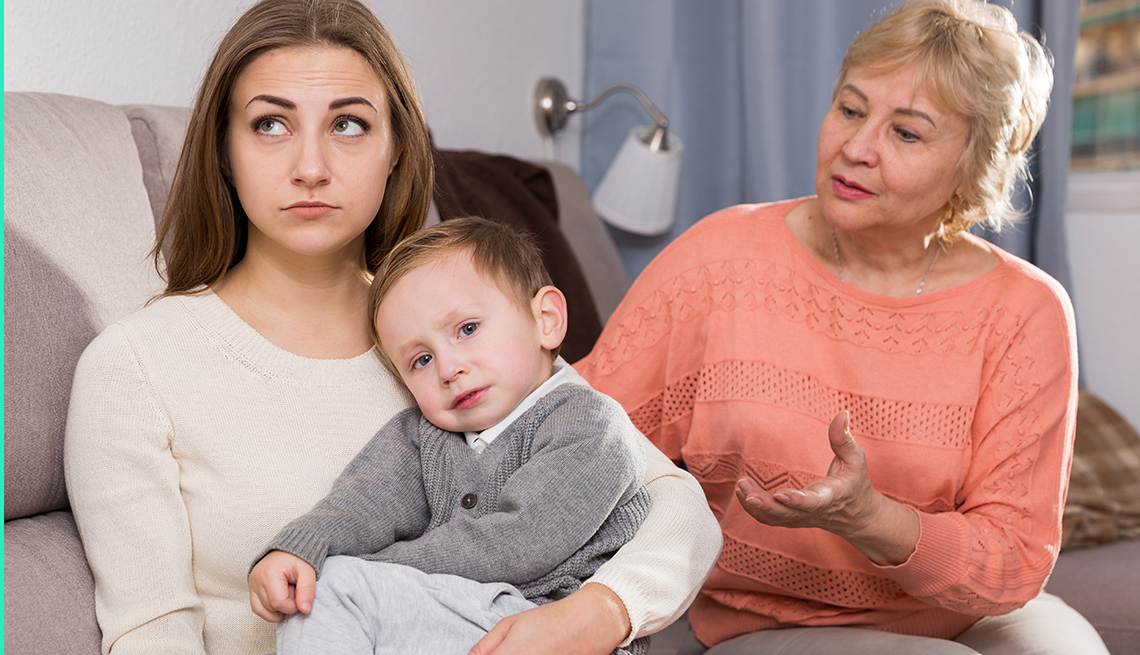
- Select a language for the TTS:
- UK English Female
- UK English Male
- US English Female
- US English Male
- Australian Female
- Australian Male
- Language selected: (auto detect) - EN
Play all audios:
When parents and grandparents disagree about how grandchildren are being raised, those disputes often center on discipline, food and screen time, according to a new national poll. The result
of those disputes can mean that parents limit the amount of time grandparents get to spend with their grandchildren. The C.S. Mott Children's Hospital National Poll on Children's
Health surveyed 2,016 parents with children under 18 and asked them about the role of grandparents in their lives and in the lives of their children. The most common source of conflict
between grandparents and parents when it comes to grandchildren is discipline. The survey found that 57 percent of parents who reported disagreements said they resulted from behavioral
issues. Forty percent of parents who reported disagreements said they stemmed from grandparents treating children too leniently, while 14 percent said grandparents’ tough love caused
disputes. New views on discipline tactics — such as spanking and other types of corporal punishment — as well as new research on child safety, like using a booster seat or letting children
stay home alone, can spur conflict. Researchers found that when grandparents didn't support or comply with parents’ requests about how to raise grandchildren “parents were likely to
limit the grandparent's time with the child,” says Sarah Clark, who codirected the national poll, based at the University of Michigan. “We think this has a negative impact for children
and grandparents." GENERATIONAL DIFFERENCES CAN BE AN ISSUE Among parents who said their child sees at least one grandparent regularly, 6 percent reported major disagreements with one
or more grandparent about their parenting, and 37 percent reported minor disagreements, the poll found. In addition to discipline, other issues caused problems, including conflicts over food
and screen time. Kay Hickey, 86, of Amagansett, New York, says differences in parenting expectations may be caused by the age gap between parents and their children. “The most important
difference is the cultural difference between my era and theirs,” Hickey says of her two children and four grandchildren. Respondents to the poll said smartphones and the internet have
presented parenting challenges that their own parents never faced. “I think that children today are absolutely immersed in their iPhones,” Hickey says. “I see them wherever they are, and I
think it's horrible.”









